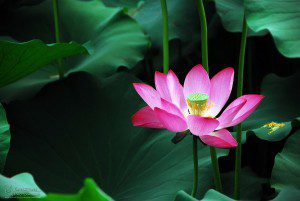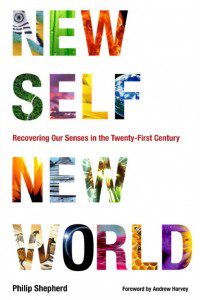Guest Writer for Wake Up World
In chapter nine of Homer’s epic The Odyssey, a strange event is described: Odysseus arrived with his crew in the country of the Lotus Eaters, and chose three scouts to reconnoitre. On encountering the local inhabitants, the scouts were offered not hostility but food: a type of honey-sweet lotus fruit, which they devoured readily. But the more they ate, the more forgetful they became – forgetful of returning to Odysseus, forgetful even of their desire to return home. So deep was their craving for more of the fruit that when Odysseus and his men found them, they had to be carried forcibly back to the ships where, still weeping, they were tied beneath the rowing benches.
The story of the Lotus Eaters has a special relevance for us, for we too are driven by cravings. What really strikes home for me, though, isn’t so much the addictive longing the fruit creates, as the forgetfulness it induces. And more specifically, the fact that those eating the fruit seemed unaware of its power to induce forgetfulness.
[pro_ad_display_adzone id=”110028″]
I see that same story playing itself out in my own life, particularly when I find myself staring at a little screen. The longer I stare, the more forgetful I become of my breath and the unfelt, living world around me. As the spell of my private screen draws me deeper into forgetfulness, I suffer a further loss that I seem almost to be anaesthetized to: the coherence of my being – that clear, alert attunement to self and world – clouds over and deteriorates into white noise. In the absence of that coherence – an absence that endures long after I have stepped away from the screen – I have the sense of drifting through the hours that follow. That sense of drifting is a sure sign that I am under the spell of a mythic Lotus.
To wrest free of this oblivion, I think it’s crucial to identify the fruit that lures us. It’s not the screen itself – the screen is just the enabler. But what does it enable that is so deeply seductive? I think the answer is that it gives us access to a particular kind of information that is appealing in its promise of certainty and value, forgiving in that it’s easily digestible and asks very little of us, and as transitory as a ceaseless consumer could ask for. I call this kind of information digital information, because like digital music it breaks the whole into discrete bits that profess to add up to a whole, but which are always riddled with gaps.
We are addicted to gathering such facts about the world the way a hoarder piles up stuff. We want to know about bargains, new products, the latest political scandal, miracle diets, cute kittens, the latest fads, celebrity romances and the economy. We crave expert advice on our health, the environment, career choices, fashion choices and relationship choices. We gather such ideas insatiably, because of a tacit promise our culture communicates: Knowledge Will Save Us. Armed with our broken facts – facts that stand independent of the world they purport to represent – we hope to wield the knowledge they empower us with and make things better. We hope to fix our own lives and we even hope to gain enough knowledge to fix the world.
That is the promise, anyway, but it is an empty one. Exposing its frailty is as simple as asking, “But if knowledge could save us, wouldn’t we and our planet be much better off now than we were, say, three hundred years ago?” Coral reefs dying, antibiotics rendered ineffective, pollinators perishing, WMDs stockpiled, income gaps expanding – we have inherited a world of unintended consequences, and it bears witness to the ways in which objective knowledge becomes lethal when it is not counterbalanced by an equal measure of self-knowledge. Like the Lotus Eaters, though, we have fallen so deeply under the spell of the promise that we barely remember what it means to come home to ourselves, and are confused about how to go about it. There is no Odysseus in the wings, ready to drag us away from the source of our forgetfulness, kicking and screaming, until we come to our senses. And so we find ourselves drifting, distracted and anxious.
I believe that we will awaken from this spell only if we learn to heed and cherish another kind of information, one that courses through the present and actually makes it what it is. I call this analog information. We might say that analog information is the communion that joins all things to all things. In a very real sense, it is the present – for we feel What Is only through exchanges of information, and everything that is can be understood as information that is in continuous exchange with all other information, streaming through the fields that make up reality. Like analog music, such information moves primarily in waves that simultaneously arise from the whole and constitute it.
From the human standpoint, though, what differentiates analog information is that it speaks to our being; digital information speaks to our ideas. We feel analog information, we experience the world passing through us, and as it does, we are informed by it – often in ways that don’t readily lend themselves to verbalization; and often in ways that can more deeply inform us about the world and ourselves than any screed of facts could ever do. ‘Who we are’ is illuminated by our felt relationships with the present. They are what bring us home to ourselves. We learn from the life and mystery of the world through analog information; we learn about the world through digital information.
Ancient hunter/gatherer cultures rely on analog information for their survival. They recognize its subtlety, richness and fathomless depth as a commonplace. Our culture barely acknowledges it. And that’s a pity, because to learn only about the world and never from it is to consign ourselves to a disconnected, isolated and impoverished existence. It is to banish the very possibility of activating the humming, clear coherence of our being – for such coherence does not stand inside us independent of the present. It belongs exclusively to the present; we are gifted with a coherence of being only as we surrender to the present and attune to it. And that surrender, that attunement, is something that happens through the sensitivity of the body. Much of the self-help industry neglects this, and encourages us to believe that coherence of being can be achieved by applying the correct ideas to ourselves. It just doesn’t work that way, however much we might wish it to. You cannot rearrange yourself into a state of harmony by following the right rules.
We will remain Lotus Eaters as long as our ideas about the world seem to better inform us than the voluble, living reality to which we belong. And our ideas will continue to seem superior until we discover what it is to allow our consciousness to descend into the body, and make peace with the present, and come to rest in that peace.
The antidote to the Lotus fruit is always remembrance – a remembrance of the body, a remembrance of What Is, a remembrance of a kind of information that is not broken into bits. Such remembrance carries you into wholeness and coherence. And such coherence, once found, can even stand firm against the debilitating distractions of the little screen.
New Self, New World: Recovering Our Senses in the Twenty First Century
If we were to consider the towering crises faced by the 21st century and trace them to their roots, we would find that each of them leads back to the same cultural force: the one that tells us who we are. Culturally speaking, ‘living in the head’ is the elephant in the room: it dominates all we do, and no one seems willing to start a conversation about it. New Self, New World initiates that conversation.
Written by author Philip Shepherd, New Self, New World traverses disciplines and boundaries with ease and precision, gathering wisdom as it goes. It is a philosophical masterwork, a spiritual handbook, a sweeping historical renewal of the human story, and an alignment of the profoundest mystical teachings of the world. Between its two covers awaits a lifetime of adventure.
New Self, New World is available here on Amazon, or visit PhilipShepherd.com for more information.
About the author:
 Philip Shepherd is recognized as an international authority on embodiment. His unique techniques have been developed to transform our experience of self and world and are based on the vision articulated in his celebrated book, New Self, New World. Philip understands that most of our problems, individually and globally, stem from a single root cause: we have created a culture of disconnection. The approach he takes heals the frantic, restless pace of the intelligence in the head, which tends to run on overdrive, by uniting it with the deep, present and calm intelligence of the body.
Philip Shepherd is recognized as an international authority on embodiment. His unique techniques have been developed to transform our experience of self and world and are based on the vision articulated in his celebrated book, New Self, New World. Philip understands that most of our problems, individually and globally, stem from a single root cause: we have created a culture of disconnection. The approach he takes heals the frantic, restless pace of the intelligence in the head, which tends to run on overdrive, by uniting it with the deep, present and calm intelligence of the body.
You can follow Philip’s work and contact him via his website www.philipshepherd.com and www.facebook.com/philip.shepherd.16.
Lotus image by Gadget Dan: www.flickr.com/photos/gadgetdan
[pro_ad_display_adzone id=”110027″]








